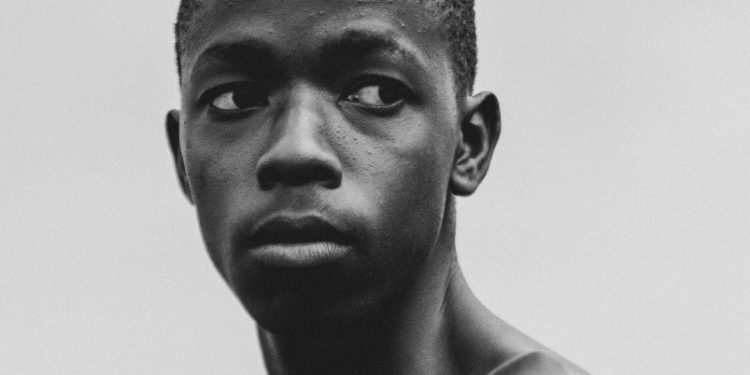If we were to agree to disagree, it will take a while before the coming-of-age films genre makes its long-standing mark in the Kenyan film industry. This is surprising, considering our zeitgeist as a country of robust youthful vibrancy, naïve curiosity and adrenaline rush escapades. The genre mainly centres on the themes of youth, growth and maturation. It tends to challenge the conventional archetype characters with the protagonist sole purpose to take viewers on a self-discovery journey, of what it truly means to “come of age”.
Rising Son, the directorial feature debut from Kelvin Osoo, is a coming-of-age film by definition, but does it quite capture the true essence, of what the genre requires? The film sets up the tone and feel of what to expect, with an opening quote, “A gem cannot be polished without friction nor a man perfected without trials”. This by itself sums up what the entire plot will be. Loki (John Soulre), a young intellectually gifted boy who is at the transitional peak into manhood, is thrown various ‘adult’ life challenges and must prove himself by overcoming it all, without losing his dreams and aspirations in the process.
Loki’s journey is set in motion with the opening scene – a lineup of young boys having just completed the initiation process, and are given full permission by their mentor, to go right ahead and find a woman to impregnate and settle down with. The African definition of masculinity is one instilled at a very young age, in a boy’s life. A man must always be tough (regardless of the situation), be a provider, a protector and most importantly, a leader. Every man should live by this status code for generations to come until he breathes his last. What results from this is toxic masculinity.
Loki admires his father Baba Loki (Sospeter Mwangi) who is – a clear example of machismo – and puts him high up on a pedestal, considering he is the closest example of who a real man is. His father, ironically, becomes the biggest hurdle to Loki’s journey to manhood. He is an abusive alcoholic who constantly undermines Loki’s dreams and potential by projecting his own insecurities. There is a scene where Loki is sent home due to school fees arrears. His father decides to stop paying his fees entirely, and goes ahead to justify that education is not important, since he never went to school and the world never came to a stop.
Still only a boy, Loki is thrust into manhood when his father abandons the family, taking all their belongings and vanishing. He’s left alone with his sick mother and two siblings. With nobody else to turn to, society expects him to man-up immediately, and together with the help of his brother fend for the family.

Rising Son is beautiful story that clearly shows the trajectory of growing up and the various motifs and themes such as young romance, identity crisis, peer pressure and self-acceptance in a world where you’re greatly misunderstood. However, the film’s execution feels deliberately lost as to how to deliver this message. The stylistic format of realism meets documentary meets narrative film fails to capture the true emotional arc Loki experiences within the story. Rising Son struggles to coalesce into a cogent, persuasive wholeness, as if distracted by its many detours and ideas. This causes a sense of confusion and many questions by the viewers like how did we arrive at this particular point in the story?
One definitive example would be when Loki’s high school crush Akina (Faith Adasha) becomes pregnant after being sexually assaulted by her biology teacher. As viewers, we are completely blindsided by the information. It’s very off-putting, this layering of too many half-finished ideas, instead of taking just one or two interesting ideas and following their trail of complexities.
Another major setback in Rising Son is that other than from Loki, the rest of the characters feel very shallow and one-dimensional, hence limiting their impactful contribution to his journey. The camera work, done by Daniel Skilton only makes matters worse, with so many unstable movements, unnecessary drone shots and poor judgement of camera angles, one cannot help but wish the camera was just on a tripod and the actors simply acted in front of it.
In spite of all this, the beauty in storytelling is the human connection it brings out. With the stylistic format of narrative heavily borrowing on documentary/realism, the shooting of the entire film was on location and in direct collaboration with the people of the Kasarani community in Naivasha. This nuance gives Rising Son some flavour. All the actors in the film are first time performers, and were casted well into their roles, with some of them acting their real life personas. The headmistress at Loki’s school is actually a headmistress of the same secondary school (her performance is beyond realistic).
Rising Son is also commendable for two things. One is the complete involvement of the residents in Kasarani, Naivasha. The broadening of the film landscape to other counties other than Nairobi, is refreshing to the eye. Second, is the directors daring approach to work with complete novice actors, who most, if not all, are seeing a camera for the first time.
However, with good comes the bad. Since some actors portrayed their actual selfs on camera, others were completely shy and self- conscious while others acted from a melodramatic point of view. Perhaps if the director paid closer attention to the style the story dictated and stuck with it rather than forcing a blend of different formats, then the viewers would have fully felt the individual performances.
Coming-of-age films, tend to have a simple approach, which would easily make any director assume, that as long as you cast an underage actor, then that is it. However, its complex nature of making the protagonist very relatable pushes a director to new creative heights. The balance is what makes this genre intricately beautiful. Loki’s journey is definitely one of maturation and growth into re-defining his perception of manhood and wishing to escape to start a fresh (he goes to Nairobi, because of a scholarship attained). However, as Rising Son ends, one cannot help but wonder, did he really come-of-age or was he just a victim of circumstances?
Enjoyed this article?
To receive the latest updates from Sinema Focus directly to your inbox, subscribe now.










